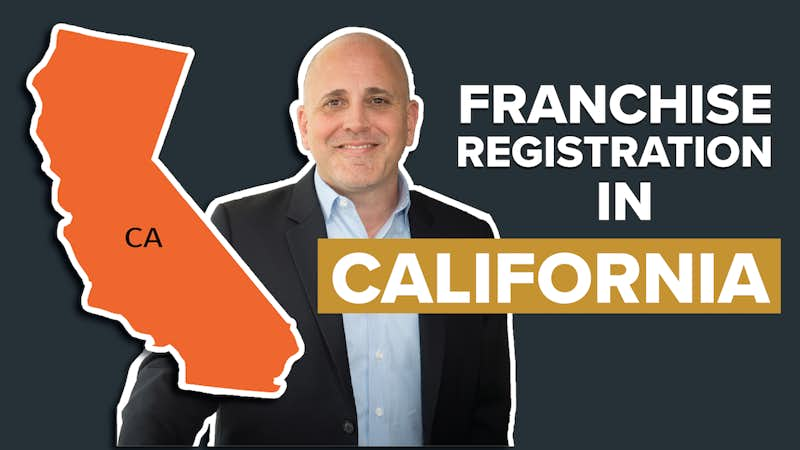Franchise Registration in California
California is a franchise registration state, which means franchisors must register their Franchise Disclosure Document (FDD) with the California Department of Financial Protection and Innovation (DFPI) before offering or selling franchises in the state.
- Initial registration fee: $1,865
- Renewal fee: $1,245
- Expiration: 110 days after fiscal year-end
The governing statute is the California Franchise Investment Law (CFIL), which imposes strict requirements on franchisors before any offer or sale can occur.
→ See our California Franchise Lawyer page for guidance on structuring FDDs and agreements that meet these requirements.
Key Compliance Requirements Under the CFIL
Franchisors must comply with:
- FDD Registration with the DFPI before offers or sales
- Annual Renewals within 110 days of fiscal year-end
- Amendments after material changes
- Disclosure at least 14 days before signing
Failure to comply can result in fines, rescission claims, and restrictions on selling franchises in California.
California Franchise Registration Process
The process typically involves:
- FDD Preparation – Drafting or updating your FDD to meet FTC and California standards
- DFPI Filing – Submission with registration fees and required exhibits
- Comment Letters – Responding to regulator feedback and revising the FDD
- Approval & Disclosure – Registration approval allows you to offer franchises in California
- Ongoing Compliance – Annual renewals, amendments, and exemption filings
In practice, registration usually takes 8–12 weeks, depending on examiner review.
→ Explore our Franchise Growth Counsel program.
California Franchise & FDD Registration FAQs
The California Department of Financial Protection and Innovation (DFPI) oversees all franchise registrations and enforces the California Franchise Investment Law (CFIL).
Filings typically include: Uniform Franchise Registration Application, notarized verification, FDD with California addendum, audited financials, sales agent disclosures, and a consent to service of process. Applications must be filed online through the DFPI’s portal.
Audited financial statements are required, including three years of financials (P&L, cash flow, and equity). Start-ups may use a phased-in audit beginning with an audited opening balance sheet.
For most new franchisors and franchisors that, based on their audited financial statements, possess limited working capital and equity, California DPFI will impose financial assurance requirements that, tyoically, require the franchisor to either
- Defer collection of initial franchise fees until the franchisee is open for business and all of the franchisor's pre-opening obligations are satisfied;
- Escrow of initial franchise fees with an authorized California financial institiution; or
- Post a surety a bond
In practice escrow conditions are difficult to satisfy and, depending on the industry, franchise brands will elect to defer initial franchise fees or purchase a surety bond.
If you negotiate franchise agreement changes, you must:
- File a Notice of Negotiated Sale within 15 days,
- Add an appendix summarizing negotiated terms benefiting franchisees, and
- Provide copies of negotiated terms to future franchisees on request.
Registrations must be renewed annually within 110 days of fiscal year-end. For calendar year franchisors, the renewal deadline is typically April 20.
Yes. California recognizes exemptions including: seasoned franchisor, large investment, large franchisee, existing franchisee, insider, and fractional franchise exemptions. These are narrow and often still require disclosure. Learn more about California’s FDD registration exemptions.
Useful Links on California Franchise Laws
📘 California Franchise Investment Law – Full Statute Text
📄 California Franchise Guidelines – DFPI
🗺️ Interactive Franchise Registration Map
📂 California Franchise Forms & Resources
🛡️ Why Trust This Guide?
We pioneered one of the first comprehensive libraries of state-specific franchise law guides. Each page is maintained by our attorneys and reflects real-world compliance experience from representing 300+ franchise brands nationwide.
Our mission: help franchisors register, comply, and scale successfully — in California and across the U.S.
→ Learn more about our Franchise Legal Services Nationwide.
Ready to Register and Grow?
While this guide explains California franchise law, applying it to your system requires legal precision. If you’re franchising in California, our attorneys can help you prepare, register, and protect your brand.
Call (800) 976-4904 or Talk to a California Franchise Lawyer.
